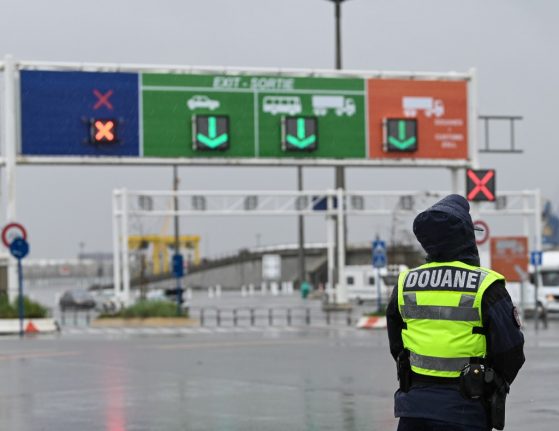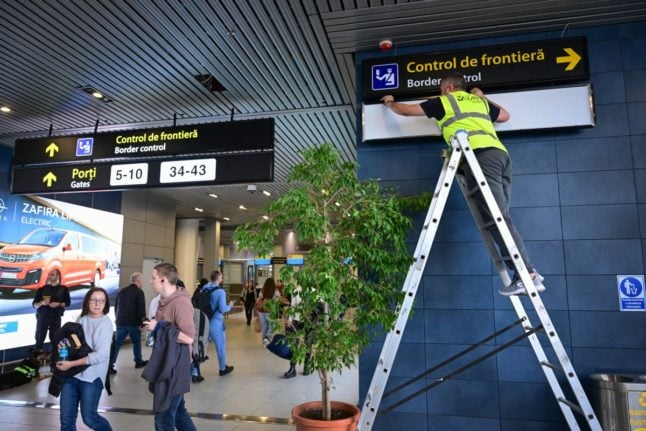And, of course, the answer is – not much. While Brexit has dominated the British press for three long, weary and mostly screamingly tedious years, most lucky French people barely give it a thought from one season to the next.
When the subject is raised in bars, coffee shops and offices, we find that the general attitude is one of pity, incomprehension and mild mockery.
Fortunately, some proper scientists have now come along to conduct an in-depth opinion poll on French people's views on Brexit.
The Kantar Centre on the Future of Europe, which brings together a pan-European team of researchers with expertise in political and opinion polls, has conducted an online poll of 1,000 French adults to ask what they think of Brexit.
The results were then compared with similar polls in Germany, the Netherlands, Ireland, Spain and Poland, and produced some surprising variations between countries.
When asked to predict what will happen on October 31st (the current Brexit date), 29 percent of French people polled replied that the UK will not leave after all, 30 percent said Britain will leave with a deal, 16 percent said Britain leave without a deal and the remaining 25 percent said Je ne sais pas (presumably while shrugging in classic Gallic style).
READ ALSO LATEST: The ultimate no-deal Brexit checklist for Britons in France

Will the UK really go this time? The French are unsure. Photo: Kantar
Moving on to the question of whether or not Brexit is such a great idea, 40 percent of the French people surveyed said it was either a bad or very bad idea, 26 percent were undecided, while just 20 percent thought it was either a good or very good idea.
Asked about the impact of a no-deal Brexit on the UK, 59 percent of French people thought it would have an adverse impact on the country. And, on this topic, the French took the most optimistic view. In Germany, a full 82 percent of people thought that a no-deal Brexit would be bad for the UK, while in the Netherlands, Ireland and Spain, more than 70 percent of people thought it would have an unfavourable impact on the UK.
The French also took an optimistic view of the impact of a no-deal Brexit on the rest of the EU, with 35 percent saying they thought it would make no difference and 10 percent saying they think it will improve things for the rest of the bloc. France was again notably more optimistic on this matter than the other countries surveyed, with Germany and Spain leading the doom-mongers in saying that things would be worse for the EU in the case of a no-deal Brexit.
The survey also asked French people whether they would like a referendum on the subject of membership of the EU. The idea of leaving the EU had at one point gained some political currency in France, with the far right Rassemblement National advocating it for several years. However, after losing heavily in the 2017 election – and seeing the chaos across the Channel – it now seems to have been quietly dropped from Marine Le Pen's party manifesto, with the RN favouring reforming the institution from within instead.
But, when asked “Would you be in favour of France holding a referendum on its membership of the EU?”, 37 percent of people said they would be totally or partially in favour. A total of 30 percent were strongly or partly against, while 23 percent were neither for nor against and 10 percent of people didn't know.

An EU referendum in France looks like it would be a more decisive affair than the 48:52 nightmare that has plagued Britain
While opinion seemed a little vague on whether they want a referendum or not, there was at least one decisive vote – just 24 percent of people said they would vote to leave while 54 percent wanted to remain. Of the others, six percent wouldn't vote while the remaining 18 percent didn't know.
And France was the most Eurosceptic of the countries polled. Germany, the Netherlands, Ireland, Spain and Poland polled leave votes of respectively 17, 19, 12, 13 and 13 percent.
Boris Johnson, not a hugely popular figure in France anyway due to his long history of 'French bashing' did not come out well of the poll, with 42 percent of French people saying that they believed he played a negative role in the ongoing negotiations between the UK and the EU, compared to just 24 percent who believed that about his predecessor Theresa May.

Boris Johnson is not seen as playing a positive role by the French
If you live in France, or just spend time here, and are unsure what Brexit means for you, head to our Preparing for Brexit section for all the latest practical information.



 Please whitelist us to continue reading.
Please whitelist us to continue reading.
Member comments